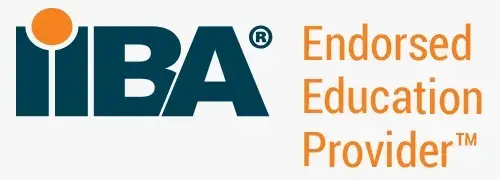What is the role of a Business Analyst in the banking sector?
In this guide, we will be talking about the role of a Business Analyst in the banking sector. Yes, you read that right. You must be wondering about what a business analyst has to do in the banking domain. But, a business analyst plays a crucial role in the banking domain, which is what we are going to be discussing in this guide.
Let’s first understand the role of a Banking Business analyst.
Role of a Banking Business Analyst
Financial analysis is the main responsibility of banking business analysts, who present reports based on the information gathered to guarantee that everything is running well at their bank. Numerous of their reports deal with urgent issues including loans, credit lines, and account setup.
The majority of their work is gathering data. They analyze all kinds of transactions and use the data to enhance bank operations or build prognostic financial models. They lead or provide advice on financial projects in addition to performing financial analyses. As it is their duty to evaluate the risk to the bank, they are essential in establishing the creditworthiness of those seeking loans or lines of credit.
People also want to know What Are The Roles & Responsibilities of A Business Analyst?
Banking Business Analyst skills requirements
What are the basic skills required to become a banking business analyst? Techcanvass has formulated a CRAFT framework to show the requisite skills for an entry-level business analyst. Here are some skills of a banking business analyst:
1. Communication skills: A banking business analyst must have strong communication skills. Both written and oral communication skills are important as a BA needs to interact with customers, clients, or other banking professionals.
2. Decision-making abilities: Banking business analysts frequently work with little supervision and must make quick, autonomous decisions regarding approving loans and credit applications.
3. Functional/domain skills: Understanding the business domain is a definite advantage for every business analyst. Banking and financial services are one of the domains (Referred to as BFSI) and are the leading sector outsourcing IT projects. So if you are strong in that domain, your movement to a BA role is easier. As you have a retail baking background, you have a definite advantage.
4. Financial management expertise: Banking business analysts need to be familiar with a variety of financial and accounting concepts and principles, from creating financial statements to completing tax return reviews.
5. Time management: Banking business analysts are expected to routinely fulfill deadlines and manage their time for loan closures and daily transaction reports.
6. Computer proficiency: It is crucial for banking business analysts to be knowledgeable about particular accounting and other financial applications as well as Microsoft Office programmes.
7. Problem-solving abilities: Banking business analysts must come up with innovative answers for customers who have money problems that are affecting their ability to get loans or credit.
Business Analyst Certification
Certifications don’t guarantee a job but it plays an important role in getting your resume shortlisted. If you don’t have any experience in a particular profile (in the BA profile), you need to have a certification in your resume.
Business analysis certification can boost your overall performance, reduce risk, and open up new market prospects. A certified business analyst has better clarity and understanding of the business analysis methodologies and procedures. It also demonstrates dedication, as studying for these certificates and passing the exams is no easy task. Moreover, gaining a business analysis credential also offers several benefits such as global recognition, more salary, and so on.
More BA Certifications
IIBA (International Institute of business analysis) is a Canada-based organization providing business analysis certifications. A few certifications that you can opt for in the business analysis domain are ECBA, CCBA, and CBAP.
IIBA (International Institute of business analysis) is a Canada-based organization providing business analysis certifications. They offer ECBA (Entry Certificate in business analysis) for entry-level business analysts.
Business Analyst education and training in banking
Many firms need at require a bachelor’s degree in business or business administration with a focus on finance or accounting from candidates for banking business analyst positions.
Candidates with a degree in finance, financial planning, financial management, or a related field are also eligible. A master’s degree in any of these subjects may be beneficial for career progression. Banking rules, financial statements, taxes, and financial planning are all covered in these degree programs.
Banking Business Analyst job description
To get an idea about the job description of a business analyst job description, here is an overview of a few responsibilities that you should look into:
- Work closely with the BA Lead on the development of new systems that will allow the bank to offer new goods and services to its stakeholders.
- Business requirements should be elicited, analyzed, specified, and verified.
- Create documents with high-level requirements.
- Assist technical teams in developing the best use cases and database design.
- During various stages of testing, coordinate with the testing team in the UAT phase, represent end-users.
- Organize and supervise a group of junior business analysts.
- Invest in automation and technologies that help you keep track of what you’re doing requirements.
Banking Business Analyst salary outlook
Banking business analysts earn a median annual salary of almost $80,000, according to the Bureau of Labor Statistics (BLS). The 10th percentile earns around $46,500 per year, while the top earners take home nearly $150,000 per year. Bank business analysts can earn just over $100,400 per year, with those who work with securities and commodity transactions earning more than $118,000.
Moreover, according to the BLS, business analysts will see a 14 percent increase in employment from 2016 to 2026.
Facing Business Analyst Interviews
Once you have got an idea about banking business analysis, you need to modify your resume. It’s important to add specific key terms and activities to align your resume as per the banking business analyst role.
After you have prepared and aligned your resume, the next step is to upload your resume on job sites and start appearing for the interviews. However, one important tip to successfully clear your job interviews is to prepare questions in advance and be confident while speaking with HR.
Moreover, you can explore our business analysis interview prep course, where you can enjoy a complete and comprehensive interview preparation with industry experts.
You can also read the detailed article on What are Scenario Based Questions that are asked in a Business Analyst Interview?
Conclusion
Finally, a Banking Business Analyst is critical to the smooth and efficient operation of the banking sector. The roles, abilities, education, and training required to become a Banking Business Analyst are detailed in this guide. A business analysis certification can improve your performance, lower your risk, and open up new market prospects. You can land a job as a Banking Business Analyst by aligning your resume and preparing for interviews.
Have you ever wanted to take your business analysis skills to the next level and specialize in the banking domain? Look no further than Techcanvass's Business Analyst Training in Banking Domain!
Our comprehensive course is designed to equip you with the knowledge and skills you need to excel as a business analyst in the dynamic world of banking. Through a mix of theoretical and practical training, you'll learn about the unique challenges and opportunities presented by the banking industry, as well as the key concepts and techniques used by successful business analysts.
With Techcanvass, you'll benefit from a team of experienced trainers who bring real-world expertise to the training sessions. So if you're ready to take your career to the next level and specialize in the exciting field of banking, enroll today!



